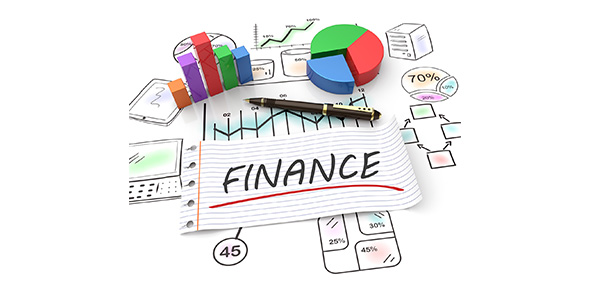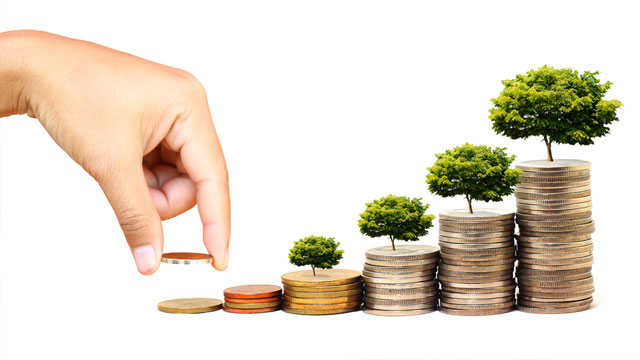Related Flashcards
Related Topics
Cards In This Set
| Front | Back |
|
Identify and briefly describe the five most significant trade agreements.
|
*The World Trade Organization (WTO) - the organization that mediates trade disputes between countries and also sets policies in place to encourage trade.
*The General Agreement on Tariffs and Trade (GATT) - an agreement signed by many countries to reduce the restrictions on trade with one another; it is overseen by the World Trade Organization (WTO).
*The North American Free Trade Act (NAFTA) - an agreement signed by many countries to reduce the restrictions on trade with one another; it is overseen by the WTO.
*The European Union (EU) - a common market that includes principal Western European nations. The EU will eventually reduce all barriers to trade and become unified both economically and politically.
*Organization of the Petroleum Exporting Contries (OPEC) - an organization, consisting of 12 oil-producing contries, to work collectively for oil interests. (pages 80-85)
|
|
What is causing the increase in international business activities?
|
The world economy is fast becoming an interdependent system-a process termed globalization. International trade is increasing very rapidly for several specific reasons. Governments and businesses are becoming increasingly aware of the benefits of globalization; new technologies have made travel, communication, and commerce much faster and cheaper; competitive pressures have forced companies to expand into foreign markets to keep up with competition; and legal agreements have encouraged the expansion of international trade. (pages 72-74)
|
|
Define comparative advantage and absolute advantage.
|
Comparative advantage theory states that a country should sell to other countries those products that it produces most effectively and efficiently and should buy from other countries those products that it cannot produce as effectively or efficiently. Absolute advatage occurs when a country has a monopoly on producing a specific product or is able to produce it more efficiently than all other countries. (pages 74-75)
|
|
Discuss the methods of expanding a business internationally.
|
*Licensing-Selling the right to manufacture a product or use a trademark to a foreign company (the licensee) for a fee (a royalty).
*Exporting-Selling products to another country.
*Franchising-An arrangement whereby someone with a cood idea for a business sells the rights to use the business name and sell a product or a service to others in a given territory.
*Contract manufacturing-When one country produces goods with another country's company label on it; this is also called outsourcing.
*International joint ventures and strategic alliances:
-A joint venture is a partnership in which two or more companies (offten from different countries) join to undertake a major project for a specific time period.
-In a Greenfield investment, a company decides to enter a country and build offices and production facilities.
-A strategic alliance is an agreement between two or more companies to work together to achieve competitive market advantages.
*Foreign direct investment-Buying permanent property and business in foreign nations.
-A foreign subsidiary is a company owned in a foreign country by another company (parent company)
-A multinational corporation is an organization that manufactures and markets products in many different countries; it has multinational stock ownership and multinational management. (pages 86-93)
|
|
Brefly describe the legal and political issues in international trade.
|
*Import quotas-Restrictions on the number of products of a certain category that can be imported into a country.
*Embargo-Complete ban on export and/or import of a particular product, or all products from a particular country.
*Tariff-Tax levied on imported products.
*Trade protectionism-Using government regulations to limit the import of foreign goods and services.
*Nontariff barriers-Restrictive standards that detail exactly how a product must be sold in a country.
(pages 79-80)
|
|
Define ethics. Explain how ethical behavior and unethical behavior are determined.
|
Ethics refers to the standards of moral behavior; that is, behavior that is accpeted by society as right versus wrong. Many Americans have few moral absolutes and make decisions situationally. However, a general agreement exists in society as to what is right and wrong. Religion and culture are usually our sources of ethics, but these two factors vary among people. Even in today's diverse culture, there are still common standards of ethical behavior. Integrity, respect for human life, self-control, honesty, courage, and self-sacrifice are right. Cheating, cowardice, and cruelty are wrong. All major religions support a version of the golden rule. Ethics are not the same thing as the law. An action for which you could be fined or imprisoned is illegal. While something that is illegal is also unethical, something unethical doesn't have to be illegal. Ethical standards are "right-versus-wrong" behavior according to society. (pages 110-113)
|
|
Compare and contrast compliance-based and integrity-based ethics codes.
|
Compliance-based ethics codes prevent unlawful behavior by increasing control and by penalizing wrongdoers. Integrity-based ethics codes define that the organization's guiding values and create an environment that supports ethically sound behavior; it stresses a shared accountability among employees. (page 116)
|
|
Describe the five steps in setting up a corporate ethics code.
|
*Top management must adopt and unconditionally support an explicit code of conduct.
*Employees must understand that expectations for ethical behavior begin at the top and all employees are expected to act ethically.
*Managers and others must be trained to consider the ethical implications of all business decisions.
*Outsiders such as suppliers, subcontractors, distributors, and customers must be told about the ethics program.
*The ethics code must be enforced. If rules are broken, consequences should follow quickly. Enforcement shows employees that the code is serious and cannot be broken. Phone lines should be established so that employees who don't want to be seen with an ethics officer can ask about the ethical matters anonymously. (pages 116-117)
|
|
What is a company's social responsibility? What three measures can be used to determine a company's social responsibility?
|
Corporate social responsibility is the level of concern a business has for the welfare of society. Three determinants are used to judge the social performance of a company.
*Corporate philanthropy is an indicator of social responsibility that includes charitable donations.
*corporate responsibility is an indicator of social responsibility that includes the actions the company takes that could affect others. This can include everything from hiring minorities to making safe products to providing a safe work environment.
*Corporate policy refers to the position a firm takes on social and political issues. (pages 118-121)
|
|
What responsibilities does a business have to its stakeholders (employees, customers, and investors)? How does ethical behavior help serve each of these stakeholders?
|
*Customers-Businesses have responsibility to satisfy customers with goods and services of real value. The payoff for ethical and socially conscious behavior could be new business. All else being equal, ethical behavior benefits customers because customers prefer to do business with companies they trust, and customers view a socially conscious company more favorably than less socially responsible companies.
*Investors-The late Milton Friedman stated that corporate social responsibility means making money for stockholders. Ethical behavior is good for shareholder wealth. Even if a mistake is made, a customer will continue to be loyal if the situation is remedied. therefore, the company will end up with more customers in the long run.
*employees-Businesses have a responsibility to create and retain jobs. Busness has an oblication to see to it that hard work and talent are fairly rewarded. Retaining workers is good for business for several reasons. Replacing employees is costly. When employees feel they've been treated unfairly, they may relieve their frustrations in subtle ways. The loss of employee commitment and trust in the company can be very costly. (pages 122-125)
|
|
A country has a/an __________ advantage if it has a monopoly on producing a specific product or is able to produce it more efficiently than all other countries.
A. country
B. efficiency
C. absolute
D. comparative
|
C. absolute
|
|
Which of the following is an advantage of free trade?
A. Productivity grows when countries produce goods and servicesd in which they have a comparative advantage.
B. Domestic workers can lose their jobs as a consequence of increased imports.
C. Moving operations overseas often means the loss of service jobs and growing numbers of white-collar jobs.
D. Higher education is free to all students.
|
A. Productivity grows when countries produce goods and servicesd in which they have a comparative advantage.
|
|
_________ refers to any activity that seeks to provide goods and services to others across national borders while operating at a profit.
A. Global business
B. Global management
C. Global economics
D. Multinational management
|
A. Global business
|
|
Which of the following is an advantage to engaging in business globally?
A. Businesses have entirely new markets in which to sell their products.
B. The cost of labor is higher overseas.
C. There are cultural challenges in international business.
D. Global business is a passing fad.
|
A. Businesses have entirely new markets in which to sell their products.
|
|
A firm may decide to compete in a global market by ________ the right to manufacture its product or use its trademark to a foreign company for a fee.
A. franchising
B. licensing
C. exporting
D. using foreign direct investment
|
B. licensing
|







